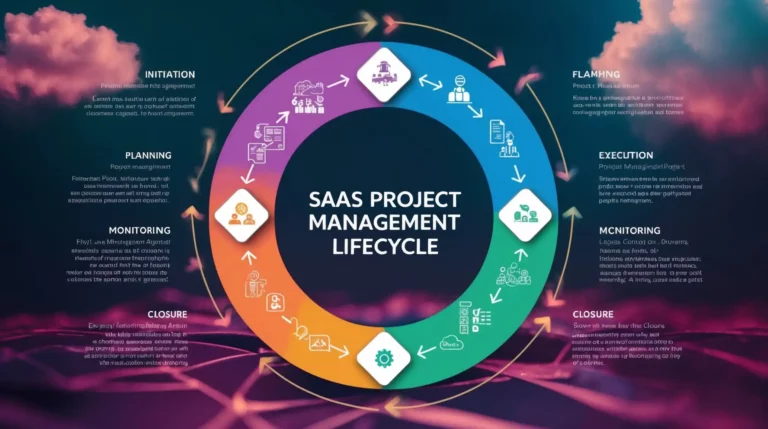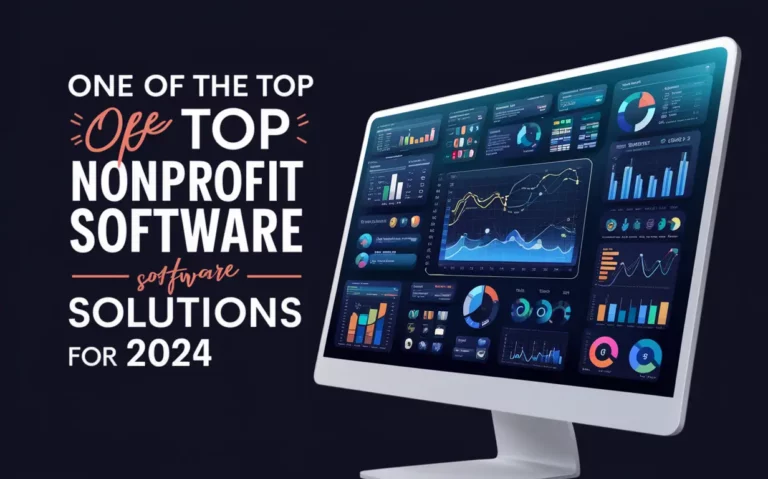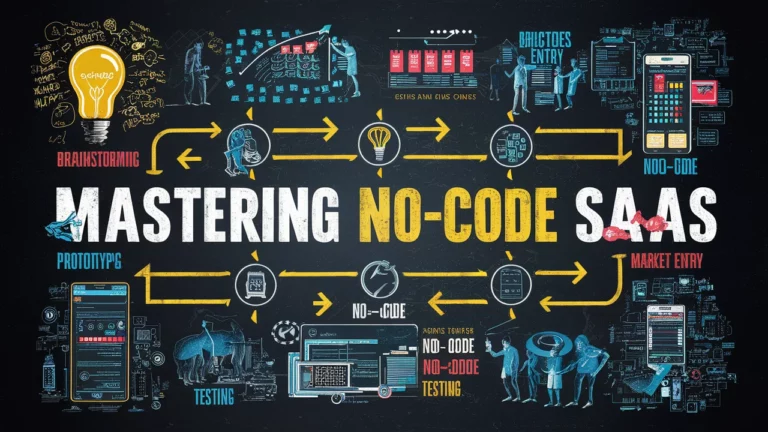How to Choose the Best SaaS Solutions for Your Small Business in 2024
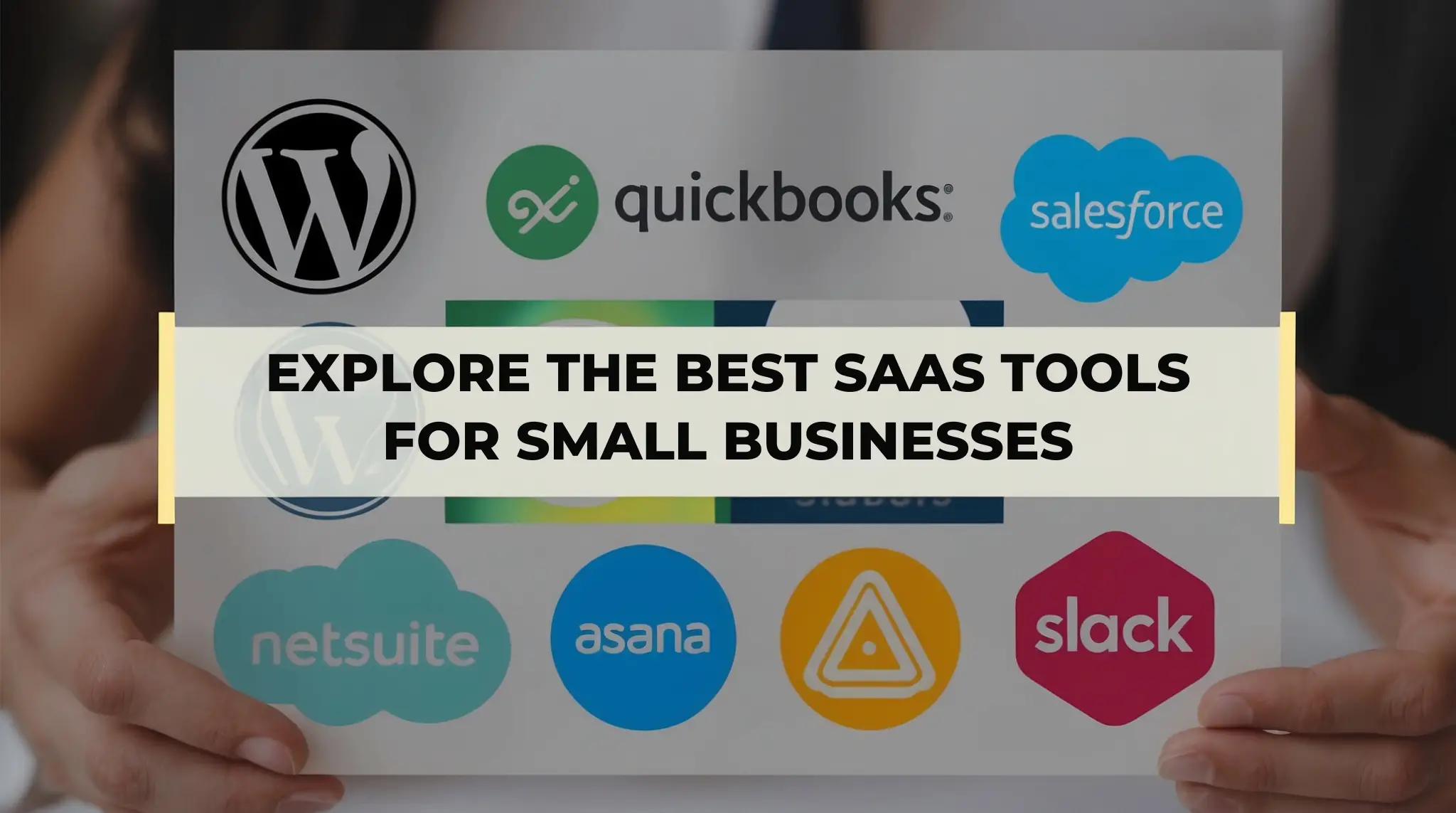
Choosing the right SaaS solutions for your small business in 2024 can be a game-changer. With the digital landscape evolving rapidly, it’s crucial to stay ahead by leveraging tools that enhance productivity, streamline operations, and drive growth.
In this article, we’ll dive deep into how to choose the best SaaS solutions for your small business in 2024, providing you with valuable insights and practical recommendations.
You’ll discover:
- Key benefits of SaaS solutions tailored for small businesses
- Essential factors to consider when selecting a suitable platform
- Emerging trends shaping the future of SaaS applications
By the end of this guide, you’ll be well-equipped to make informed decisions that align with your business goals and operational needs, specifically when it comes to choosing the right SaaS Solutions for Your Small Business.
Our audience supports Ahcrypto. When you click on the links on our site, we may earn an affiliate commission at no extra cost to you. Learn More.
Understanding SaaS Solutions
So, what exactly are SaaS solutions? Software as a Service (SaaS) refers to cloud-based services where software applications are delivered over the internet. Instead of downloading software onto individual devices, businesses access these tools via web browsers. This shift to cloud-based services has changed how modern businesses operate.
Benefits for Small Businesses
Using SaaS solutions offers several key benefits:
- Cost-Effectiveness: No need for hefty upfront investments in hardware or software licenses. SaaS platforms typically operate on a subscription basis, which can be much easier on the budget.
- Scalability: As your business grows, so do your software needs. SaaS solutions allow you to scale up or down effortlessly without needing major changes.
- Accessibility: Whether you’re in the office, at home, or on the go, you can access your SaaS applications from any device with an internet connection.
Common Types of SaaS Solutions
Small businesses have many options when it comes to SaaS solutions:
- Payroll Services: Platforms like Gusto and OnPay automate payroll processes, tax filings, and employee management.
- E-Commerce Platforms: Tools like Shopify and BigCommerce offer comprehensive solutions for online selling, covering everything from payments to inventory management.
- Learning Management Systems (LMS): Applications such as TalentLMS and Docebo facilitate online training programs, complete with course authoring and analytics.
Understanding these elements is crucial for deciding which SaaS solutions best meet your small business’s needs.
1. Types of SaaS Solutions for Small Businesses
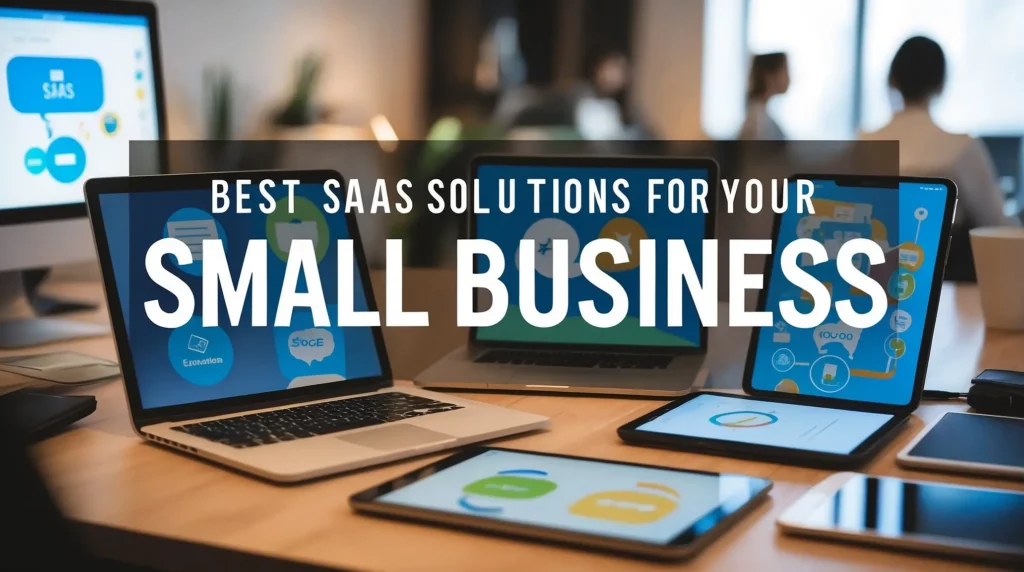
There are different types of SaaS solutions designed specifically for small businesses, including some of the best SaaS tools available. Each type has its own features and benefits that can help you run your business more smoothly and increase productivity. For instance, Notta is an excellent option for companies looking to streamline their communication and note-taking processes.
1. Accounting SaaS: QuickBooks
Key Features:
- Invoicing and expense tracking
- Tax preparation and financial forecasting
- Real-time financial reporting
Using an accounting SaaS like QuickBooks simplifies managing your business finances, offering automated processes that save time and reduce errors.
2. CMS SaaS: WordPress
Key Features:
- Website creation and management
- SEO tools and plugins
- Content scheduling and analytics
A CMS (Content Management System) such as WordPress empowers small businesses to create professional websites without needing extensive technical skills.
3. CRM SaaS: Salesforce
Key Features:
- Customer relationship management
- Sales pipeline tracking
- Marketing automation
CRM (Customer Relationship Management) solutions like Salesforce help manage customer interactions, improve sales processes, and enhance customer satisfaction.
4. ERP SaaS: NetSuite
Key Features:
- Integrated business processes
- Financial management and planning
- Inventory and supply chain management
ERP (Enterprise Resource Planning) systems such as NetSuite offer comprehensive tools for managing various aspects of a business, from finance to supply chain operations.
5. Project Management SaaS: Asana
Key Features:
- Task assignment and tracking
- Project timelines and milestones
- Team collaboration tools
Project management platforms like Asana organizes tasks, deadlines, and team communications, ensuring projects stay on track.
6. Communication SaaS: Slack
Key Features:
- Instant messaging and channels
- File sharing and integrations
- Video conferencing capabilities
Communication tools like Slack facilitate seamless interaction among team members, enhancing collaboration and information sharing across the organization.
Each SaaS category offers specialized solutions to address various business needs. From managing finances with accounting software to improving team collaboration with communication tools, choosing the right SaaS Solutions for Your Small Business can significantly impact your small business’s efficiency and growth.
2. Key Considerations When Choosing the Best SaaS Solutions for Your Small Business
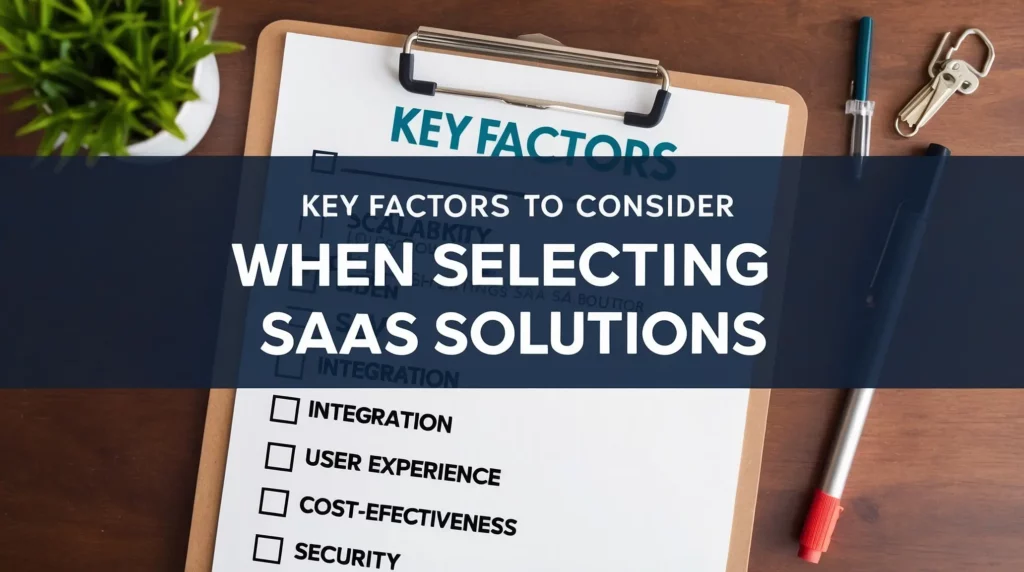
Selecting the right SaaS solution for your small business can feel like navigating a maze. Here are some critical factors to keep in mind:
Scalability
Your business isn’t static, and your software shouldn’t be either. Scalability allows your SaaS solution to grow with you. Look for platforms that offer easy upgrades or additional features as your needs evolve.
Integration Capabilities
Nobody likes juggling multiple tools that don’t play well together. Ensure the SaaS solution integrates seamlessly with your existing tools, like CRM systems, email marketing software, and other essential applications. Compatibility is key to maintaining smooth operations.
User Experience
A user-friendly interface can make all the difference. Solutions with intuitive designs reduce the learning curve for your team, allowing them to hit the ground running. Prioritize platforms known for their excellent user experience and robust customer support.
Cost-Effectiveness
Small businesses often operate on tight budgets. Evaluate pricing models carefully—some services charge per user or transaction, while others have flat monthly fees. Ensure the value provided justifies the costs involved.
Security Features
In an era where data breaches are commonplace, robust security measures are non-negotiable. Prioritize SaaS solutions that offer strong security features such as encryption, regular backups, and compliance with industry standards.
By focusing on these considerations, you’ll be better equipped to choose a SaaS solution that aligns with your business objectives and ensures long-term success.
3. Market Trends Shaping the Future of SaaS Solutions in 2024
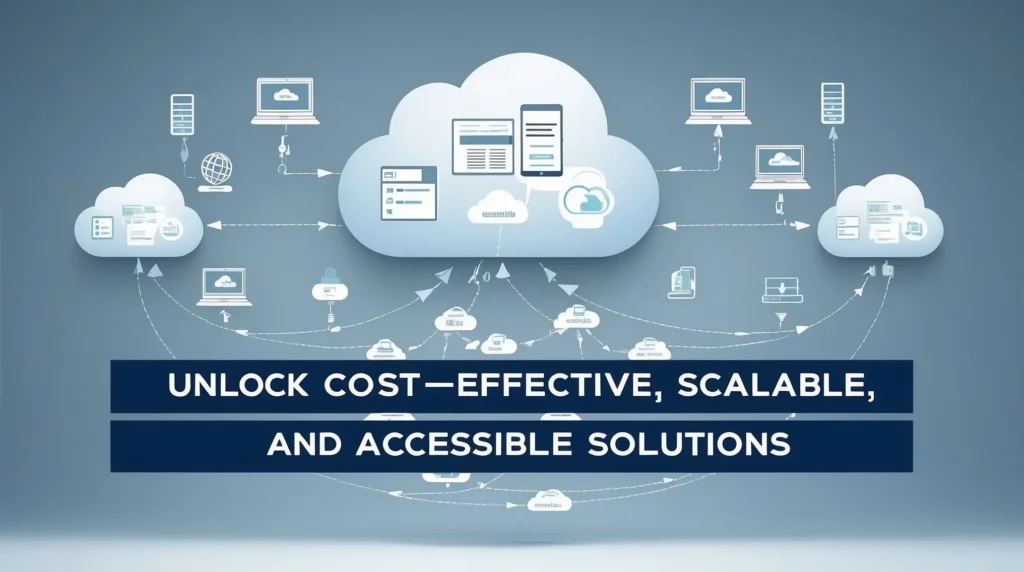
The evolving landscape of SaaS Solutions for Your Small Business is nothing short of exciting. Businesses are leaning heavily on innovative technologies to stay competitive and efficient. Here are a few trends that are making waves:
AI Integration in SaaS Products
Artificial Intelligence (AI) is becoming a cornerstone in developing SaaS products. These smart-systems can automate routine tasks, analyze data for actionable insights, and enhance customer experience through chatbots and personalized recommendations.
- Automation: AI-driven automation can handle everything from customer support queries to data entry, freeing up human resources for more strategic tasks.
- Data Analytics: Predictive analytics powered by AI helps businesses make informed decisions based on real-time data.
- Personalization: Tailoring experiences for each user by leveraging machine learning algorithms can significantly boost engagement and satisfaction.
Mobile-Friendly Solutions
As remote work continues to rise, the need for mobile-compatible tools is paramount. Today’s workforce expects seamless access to their tools regardless of where they are.
- Accessibility: Mobile-friendly SaaS solutions ensure that employees can access critical business applications from their smartphones or tablets.
- Flexibility: This trend supports a flexible work environment, allowing team members to collaborate and stay productive while on the go.
- User Experience: Designing with mobile-first principles enhances usability, ensuring that interfaces are intuitive and easy to navigate on smaller screens.
Both these trends—AI integration and mobile compatibility—are not just buzzwords but essential components driving the future success of SaaS products. Adopting these features will likely place your business at the forefront of innovation and efficiency.
4. How to Evaluate Different Types of SaaS Solutions Effectively?
When it’s time to compare different types of SaaS solutions, having a clear checklist can save you a lot of headaches. Here are some practical tips to help you make an informed choice:
Feature Sets
- Identify Core Needs: Start by listing the essential features your business requires. For example, if you’re looking at accounting software, prioritize invoicing, expense tracking, and financial reporting.
- Customization: Look for solutions that allow you to tailor features to your specific needs. Flexible platforms grow with your business.
Pricing Structures
- Transparent Costs: Compare pricing models carefully. Some services may charge per user or transaction, while others have a flat monthly fee.
- Total Cost of Ownership (TCO): Consider all costs involved, including setup fees, training, and potential add-ons. Ensure that the value aligns with your budget.
Vendor Reputation
- Research Reviews: Check out user reviews and case studies. Platforms like G2 and Capterra offer insights into customer satisfaction.
- Longevity & Reliability: Opt for vendors with a proven track record in the industry. Longevity often equates to reliability and consistent updates.
Customer Support Availability
- Support Channels: Evaluate the support options available, such as live chat, email support, phone calls, or community forums.
- Response Time: Quick and effective support can be a lifesaver. Look for vendors known for their swift response times and knowledgeable staff.
Integration Capabilities
- Existing Tools: Ensure the SaaS solution integrates seamlessly with your current tools (e.g., CRM systems, email marketing software). Compatibility reduces friction in daily operations.
- APIs and Plugins: Check if the platform offers APIs or plugins that can simplify integrations with other software you might use.
Focusing on these aspects will better equip you to navigate the crowded SaaS market and choose a solution that not only meets but exceeds your expectations. It’s also worth considering the B2B elements of value when making your decision, as these factors can significantly influence the overall success of your chosen solution.
Key Takeaways About Choosing the Best Saas Solution For Your Business Needs
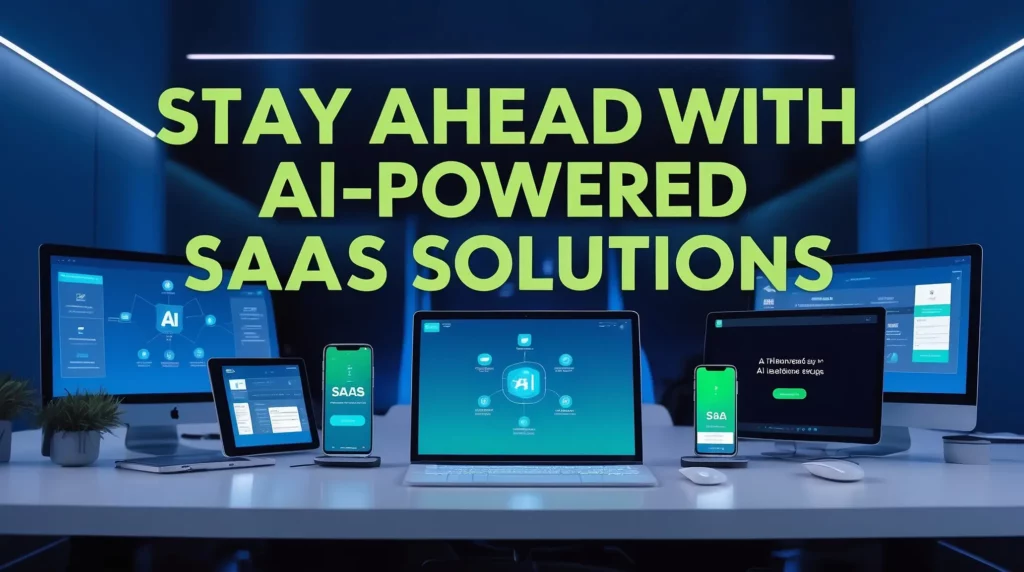
Selecting the right SaaS Solutions for Your Small Business can significantly impact your small business’s efficiency and growth. Here are some essential points to keep in mind:
- Scalability is crucial: Ensure the solution can grow alongside your business, accommodating increased demand and complexity.
- Integration capabilities matter: Choose platforms that seamlessly integrate with your existing tools and workflows.
- User experience can’t be overlooked: Opt for intuitive interfaces that minimize training time and maximize productivity.
- Cost-effectiveness is key: Balance features and pricing to ensure you’re getting the best value for your investment.
- Security should be a priority: Strong data protection measures are non-negotiable in today’s digital landscape.
By focusing on these areas, you can choose a SaaS solution that aligns perfectly with your business needs.
Conclusion
Ready to supercharge your business? Start your journey today by exploring the best SaaS Solutions for Your Small Business that fit your unique needs. From AI-powered tools to mobile-friendly platforms, there’s a wealth of options designed to streamline operations and drive growth. Don’t wait—the right software can transform your work, making it easier to scale, integrate, and secure your business processes. Dive in and discover the cloud-based services that will propel your small business forward in 2024!
FAQs (Frequently Asked Questions)

Scott Evans
Hey there, I’m Scott Evans, your friendly guide at AhCrypto! I’m all about breaking down complex SaaS, AI, and tech topics into digestible insights. With me, you’re not just keeping up with the tech world; you’re staying ahead of the curve. Ready to dive into this exciting journey? Let’s get started!




